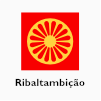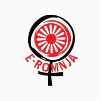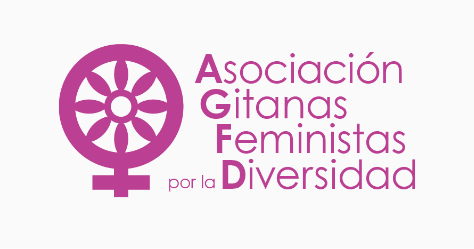The project
The Asociación Gitanas Feministas por la Diversidad leads the European project Schools of Inclusion in Diversity: Inclusion of Young Gypsy Women through Non-Formal Education which is funded within the European call ERASMUS + 2017, in action KA2 "Strategic partnerships in the field of youth. Exchange of good practices".
The project brings together Romani women from Spain, Portugal and Romania.
To carry it out, a strategic association of Romani women's organizations has been formed in these three countries, organizations that work actively and have experience specifically in the field of the inclusion of young Romani women.
This project aims to be a first step in the creation of the first school of Romani feminism.
About the project
Young Roma women in Europe suffer multiple obstacles that hinder our inclusion and undermine our capacity for emancipation. This is what the reports of the European Agency for Fundamental Rights (FRA) have shown, and we live this way every day in our daily experiences.
The objectives of our project are, first, to promote inclusion and training, through non-formal education, of young Roma women to strengthen their entrepreneurial, initiative, critical analysis and empowerment competencies; and, second, to foster intercultural dialogue and strengthen knowledge and acceptance of diversity in society, preventing racism and gender inequality.
In order to carry out these ambitious objectives, a strategic association has been formed of gypsy women's organizations from different countries in Europe that work actively and have experience specifically in the field of the inclusion of young gypsy women: Ribaltambição - Associação para a Igualdade of Genus nas Communities Ciganas (Portugal), Asociatiei E-Romnja (Romania) and Asociatia Centrul Rromilor "Amare Rromentza" (Romania).
The Roma women's Europe is a collection of didactic, training and training materials that pretend to be the seed of the first Roma feminist school with a desire to become a school of inclusion in diversity. This collection includes this "Amare Rromnă/Our gypsies/Our Romani Women" that wants to be a first step, a base on which to continue advancing in the knowledge of gypsy feminist perspective that allows us to build a roman feminist discourse European Union respectful of the struggles carried out by gypsy women in different historical moments and in different countries and, at the same time, innovative in that it focuses precisely on our protagonism, the protagonism of the gypsies, in these struggles and in the construction of a gypsy feminist thought.
About the material
“Amare Rromnă/ Nuestras gitanas/ Our Romani Women” wants to be a first step, a base on which to continue advancing in the knowledge of femininity in a feminist perspective that allows us to build a European roman feminist discourse respectful of the struggles carried out by Romani women in different historical moments and in different countries and , at the same time, innovative in that it focuses precisely on our protagonism, the protagonism of the Romani women, in these struggles and in the construction of a Romani feminist thought.
In this training material you will find basic information about the Romani People and our history as well as an approximation to the history of the Romani People in a feminist perspective.
The present volume closes with a collection of portraits of significant Romani women whose passage through the history of humanity should not continue to be silenced.
About our partners
Amare Rromentza

El Centro Romanó «Amare Rromentza» es una organización no gubernamental y sin ánimo de lucro fundada en 2001. Inicialmente, la asociación fue fundada por jóvenes romaníes y estudiantes rumanos y fue nombrada SATRA ASTRA.
En 2003 se convirtió en el Centro Romanó «Amare Rromentza». Desde entonces, «Amare Rromentza» se ha convertido en un actor importante en el movimiento romanó, desarrollando proyectos, acciones e iniciativas con y para los y las Romá.
Our approach has always taken into account the actions that emerge from grassroots Roma communities.
In all the components of our activities we always take into account the identity factor, promoting and trying to preserve the elements of the Roma culture to preserve our history and ethnic identity.
These are some of our achievements:
- In 2004 we created the first Romany-Romanian bilingual kindergarten in Romania. We currently have 12 bilingual groups in Roma speaking communities that are part of the education system;
- We introduced the figure of the educational assistant for kindergartens in multi-ethnic communities (Romanian and Romany). This position is recognized in the Statute of Teaching Personnel (National Law of Romanian Education);
- We created the intercultural curriculum for preschool that is applied jointly by the educator and the educational assistant. We have implemented these working methods in more than 50 kindergartens throughout Romania.
- "School after school" is a project that keeps schools open after school (most Romanian schools have a continuous day) and provides students with school support with competent teachers. Likewise, the participant student is provided with the midday meal.
- First introductory study on research on the level of ethnic self-esteem of Roma in Romania.
- Study on the evaluation of educational policies aimed at the Roma population;
- Research on the Romani Holocaust in Romania;
- Development of the inclusive ethno-educational concept for multiethnic schools in Romania.
- Documental sobre las víctimas del Holocausto en Rumania «Sostar na rovas? / Why not cry?» (¿Por qué no lloramos?). Disponible en rumano y romanó.
- Corto de animación sobre la discriminación en las escuelas «Mashkar amende e chavende / Between us, children» (Entre nosotros los/las niñas/os). Disponible en rumano y romanó.
Ribaltambição

Ribaltambição – Association for gender equality in Roma communities is a non-profit association of national and international scope, which was founded in 2014 with the objectives of promoting gender equality in Roma communities in Portugal, the emancipation of Roma women and the creation of spaces for reflection on issues such as education in Roma communities.
This association has acted at the level of education and training, education and promotion of Roma culture, with Roma women as protagonists.
We have participated in programs such as the ROMED of the Council of Europe, national projects such as gypsy school mentoring and projects that promote the life stories of Roma women.
E-Romnja

E-Romnja is a non-profit, non-governmental organization, founded in 2012 by a group of Roma and Romanian activists. E-Romnja is a feminist organization that fights for the respect, dignity and diversity of gypsy women at the local and national level.
Our approach is intersectional. From the beginning, E-Romnja has worked with grassroots methods in four Roma communities in the south and north of the country. E-Romnja forms groups for local initiative activities, made up of Roma women, together with whom they work to organize acts of mobilization, civic participation and cultural events. The purpose of these acts is to increase access to social services, medical care, information on reproductive rights, domestic violence, etc. We are in solidarity with different causes that fight any type of discrimination.
About Asociación Gitanas Feministas por la Diversidad

The Asociación Gitanas Feministas por la Diversidad (AGFD) began its intellectual activity with the preparation of documentation through meetings, in the form of training circles, in the month of April 2013. It was born facing the decisive fact that historically, whatever it was the political project that prevailed in Spain and Europe, the gypsy issue has been and still is intrinsically linked to social services, charity, oenegism and the paternalism of a thought that assumes that there are people to "save and rescue" of that cultural "poverty" that defines them in a homogeneous way.
We are aware that for the construction of a gypsy feminist intellectual current there will be elements and lines of "payo feminism" that will be incompatible with our discourse.
We are also aware that without a historical base of movement and feminist struggle, our discourse will be diminished. And from this need arises this project.
The historical struggle of the gypsies —the feminist warriors and our mothers— who protected us, defended us, cared for us and loved us and gave us everything we are today with their understanding, support and love, is the source of inspiration for this new awakening of gypsy women that we meet in AGFD.
Our theoretical analyzes start from a communitarian feminist perspective, taking into account the intersectionalities determined by the gender-ethnicity/racism-social class/impoverishment system.
Thanks to this roman feminist analysis the vision of action of our entity has been revealed, since the resistance and capacity for change and transformation of our community to become true protagonists/activists is in the hands of the many gypsy women who have been crying out for years the dignity of our People, our history and our identity.
AGFD, making an exercise of broader vision, betting and designing in the medium and long term, by the central axis of Roma Feminist Action (empowerment, political status of the cause, diversity, anti-racism and identity recognition) we demand the need for a change of a political strategy at the local and state level that puts the accent on the visibility of the gypsy heterogeneity and on the questioning of the political framework formulated until now without us as protagonists of our own emancipation.
